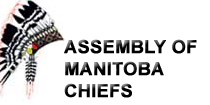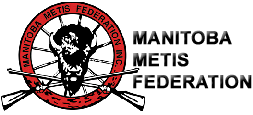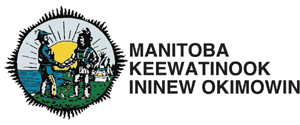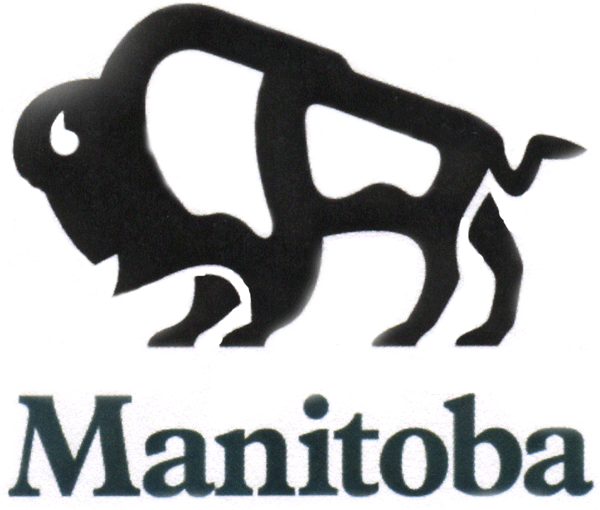|
Background
Briefing Document of the Aboriginal Justice Inquiry Child
Welfare Initiative
NOTE: - This document was prepared to
provide an orientation to Phase 1 of the AJI-CWI, as well
as the overall AJI-CWI. Excerpts of this document appear
on other pages of this web site.
The AJI and AJIC - Background
The Aboriginal Justice Inquiry was commissioned in 1988 to
examine the relationship between the Aboriginal peoples of
Manitoba and the justice system. The report was tabled in
1991 and included an analysis and observations regarding
the historical treatment of Aboriginal people by the social
service system and, in particular, the child welfare system
of the province. The inquiry stated that the Aboriginal peoples
of Manitoba were not well-served by the existing system and
made several recommendations regarding the child welfare
system;
- Establish the office of Child Protector, as recommended
by Judge Kimelman, to protect the interests of children,
to investigate any complaint into the practices of any
child welfare agency and to be responsible to the Legislature.
- Provide Aboriginal and non-Aboriginal
child and family services agencies with sufficient resources
to enable them to provide a full range of direct and preventive
services mandated by The Child and Family Services
Act.
- That federal and provincial governments provide resources
to Aboriginal agencies to develop policies, standards,
protocols and procedures, and to expand a computer system
that will permit them to communicate effectively, track
cases and share information.
- That Principle 11 of The Child and
Family Services Act be amended to read: "Aboriginal
people are entitled to the provision of child and family
services in a manner which respects their unique status,
and their cultural and linguistic heritage."
- Establish a mandated province-wide Metis agency.
- Expand the authority of existing Indian agencies to enable
them to offer services to band members living off-reserve.
- Establish an Aboriginal child and family
services agency in the city of Winnipeg to handle all
Aboriginal cases.
In 1999, the Government of Manitoba announced a commitment
to implement the AJI’s recommendations. Additionally,
the provincial government established the Aboriginal Justice
Implementation Commission to advise the government on methods
of implementing recommendations of the Report of the Aboriginal
Justice Inquiry (1991).
The Commission prioritized issues of family and child welfare
and recommended that:
"The Government of Manitoba seek to enter
into agreement with the Assembly of Manitoba Chiefs and
the Manitoba Metis Federation to develop a plan that would
result in First Nations and Metis communities developing
and delivering Aboriginal child welfare services."
The Commission makes this recommendation now because we
understand that both the Government and Aboriginal representatives
are willing to take such action and because of the importance
of children and families.
The Framework agreement between the Federal Government
and the Assembly of Manitoba Chiefs highlights child welfare
as does the tripartite agreement between the Manitoba
Government, the Federal Government, and the Manitoba Metis
Federation. Since the Report of the Aboriginal Justice
Inquiry, the Royal Commission on Aboriginal Peoples has
also recognized the importance of the area by making a
range of recommendations in its final report in 1995."
Through negotiations with First Nations and Metis representatives,
the Province of Manitoba signed three separate three-year
agreements (Memoranda of Understanding) with the Manitoba
Metis Federation (MMF) (Feb. 22, 2000) representing the Metis;
the Assembly of Manitoba Chiefs (AMC) (April 27, 2000) representing
southern First Nations; and Manitoba Keewatinowi Okimakanak
(MKO) (July 20, 2000) representing northern First Nations.
All four parties subsequently signed the Child and Family
Services Protocol. The overall purpose of these agreements
is to establish a partnership initiative under a common process
to expand off-reserve jurisdiction for First Nations, establish
a province-wide Metis mandate and restructure the existing
child care system through legislative and other changes.
The Joint Management Committee: Roles, Responsibilities
and Composition
As part of the MOU, all three signatories and the Province
formed a Joint Management Committee to produce and oversee
implementation of a detailed plan to restructure Manitoba’s
child and family services system based on the recommendations
of the AJI report. As set out in the MOU the responsibilities
of the Joint Management Committee are as follows;
- overseeing the development of the implementation plan;
- creating and directing a sub-committee of the JMC, entitled
the Implementation Committee;
- establishing working groups as may be appropriate;
- setting terms of reference, timelines and monitoring
the implementation process;
- ensuring that there is consultation with key stakeholders
during the development of the implementation plan; and
- executing the implementation plan as directed by the
parties.
The vision of the Joint Management Committee is:
A child and family services system that recognizes and supports
the rights of children to develop within safe and healthy
families and communities, and recognizes that First Nation
and Metis peoples have unique authority, rights and responsibilities
to honour and care for their children.
From this vision, the JMC has developed the following mission
statement:
To have a jointly coordinated child and family services system
with three distinct mandates (First Nation, Metis and non-Aboriginal);
that is community-based; and reflects and incorporates the
cultures of First Nation, Metis, and non-Aboriginal peoples.
The Joint Management Committee is comprised of the following
representatives selected by the signatories to the MOUs:
- Two provincial government representatives
- One representative from the Department of Family Services
and Housing
- One representative from the Department of Aboriginal
and Northern Affairs
- One representative from the Assembly of Manitoba Chiefs
- One representative Manitoba Keewatinowi Okimakanak
- Two representatives from the Manitoba Metis Federation
- One portfolio Chief selected by the Assembly of Manitoba
Chiefs
- One Metis woman selected by the Manitoba Metis Federation
- One representative of Winnipeg Child and Family Services
This nine-person membership reflects a commitment to a balance
in representation among government, First Nations and Metis
stakeholders.
To date, the Joint Management Committee has reached agreement
on the following items:
- The process for the development of a plan for the restructuring
of the child and family services system
- A March 31, 2001 target date for the completion of the
proposed plan
- The creation of an Implementation Committee
- The sub-division of the key technical areas for the
development of the plan into seven Working Groups comprised
of an equal representation of the signatories
- A December 21st, 2000 target
date for delivery plans and recommendations from each
of the seven Working Groups
The Implementation Committee
Reflecting the same balanced representation as the Joint
Management Committee, the Implementation Committee is composed
of the representatives of the four signatories to the MOUs.
The Implementation Committee is responsible for the overall
coordination and management of the Working Groups. Importantly,
the Implementation Committee has responsibility for consolidating
the workplans emerging from the Working Groups into a single
cohesive workplan that is submitted to the Joint Management
Committee, and from there, to the leadership of the parties.
The Working Groups
- Research
- Interjurisdictional/Intersectoral
- Financial
- Human Resources
- Service Delivery
- Legislation
- Technology
The core membership of the Working Groups is composed of
the same balanced representation as the Joint Management
Committee and the Implementation Committee. However, the
Working Groups are also tasked to consult with the various
external/internal groups who will/may be affected by the
restructuring of the child and family services system. The
Working Groups can also invite external expertise.
The Scope of the Working Groups
The tasks of the Working Groups include:
- research and analyze the features of the current CFS
system that will be affected by the restructuring;
- prepare and present options for redesigning and restructuring
the child and family system;
- document and model the principal features and characteristics
of the restructured system, including the impacts upon
service delivery, costs, human resources, and external
agencies;
- present options and/or strategies for managing organizational
and human resource change, and
- prepare reports for the Implementation Committee.
Individual Working Group Focus –
In Brief
- Research
Preparation of baseline data describing providers and
users of the CFS system in Manitoba including; resources
and assets, staffing, funding models, statistics and indicators,
and demographics populations of Metis and First Nations
peoples; a description of needs of Metis and First Nations
families; ientification of other models of ‘best
practice’ from other jurisdictions.
- Interjurisdictional / Intersectoral
The identification of interjurisdictional/intersectoral
issues as these relate to the restructuring of the child
and family services system and identification of options
for resolution; review of policies, funding models and
other relevant aspects regarding the delivery of CFS to
Metis and First Nations peoples and analysis of their
impact upon these peoples; an analysis of the linkages
and jurisdictional barriers between the CFS system and
other sectors (i.e., Justice, Education, Health
Canada).
- Financial
Description of current funding models and formulas; description
of the current level of resources allocated to the CFS
system and collateral providers; description of new funding
models and visions that promote the development and restoration
of families and the devolution of funding decision-making;
identification of options to develop appropriate and adequate
funding options.
- Human Resources
The identification of issues surrounding education, training,
human resources, and unions including ideas of staffing
models and educational programs that may need to be developed
or revamped; provide options for a workplace adjustment
strategy, including identification of workplace retraining
options and redeployment options; an analysis of the impact
of licensing, accreditation and liability insurance issues;
identify staffing resources necessary for newly mandated
areas; compile a database of existing staffing resources
who may become part of new agencies.
- Service Delivery
Develop a model for the provision of integrated intake
and assessment services, including a proposal for shared
governance, that reflects the specific nature of the communities
where it is being applied; develop specific proposals
for innovative prevention and early intervention programs
emphasizing a holistic approach; develop protocols and
service agreements that may be used with collateral care
providers to formalize their relationship to the systems;
develop recommendations for funding formulas to be submitted
to the finance Working Group.
- Legislation
Concentrate on the required changes to
existing legislation The Child and Family Services
Act and The Adoptions Act; include a detailed
analysis of the current legislation and its impact, including
those sections that must be changed to enable the creation
of new mandatesl propose changes to The Acts to incorporate
a renewed focus on holistic programs, prevention and early
intervention, as well as non-adversarial options; identify
changes to Foster Care Regulations and Residential Care
Licensing Regulations due to the restructuring process;
identify consequential amendments that may be necessary
as a result of recommendations.
- Technology
Description of an integrated system which links on-line
registries as required and appropriate, including security
measures and protection for legacy systems; dcriptions
of functionality, including case management and financial
management; strategic considerations of infrastructure,
integration, initial release and presentation of options
for future development on all technology related issues.
A Means of Inclusion
The AJI – Child Welfare Initiative has several means
by which the public and key stakeholders are heard and involved
in the development of a restructuring plan. Not the least
of these means is the foundation of public consultations
conducted by the Aboriginal Justice Inquiry. The invitations
from the Working Groups to the various key stakeholders and
experts also play a prominent role in bringing in outside
consultation. Each of the four signatories also have their
own mechanisms for including and consulting their constituent
base.
To further enhance these different means of inclusion, the
AJI – Child Welfare Initiative invites interested parties
to submit written recommendations on specific issues for
the restructuring to the Implementation Committee by December
1st, 2000.
Written submissions can be sent to:
The Implementation Committee
Aboriginal Justice Inquiry – Child Welfare
Initiative
c/o 216-114 Garry Street
Winnipeg, Manitoba R3C 4V4
Contact Information:
Assembly of Manitoba Chiefs
Trudy Lavallee
2nd Floor - 260 St. Mary Avenue
Winnipeg, Manitoba R3C 0M6
(204) 956-0610
Manitoba Keewatinowi Okimakanak
Winnipeg Sub-Office
Colin Kinsella
201-274 Smith Street
Winnipeg, Manitoba R3C 1K1
(204) 987-7500
Manitoba Metis Federation
John Lussier
3rd Floor - 150 Henry Street
Winnipeg, Manitoba R3B 0J7
(204) 586-8474
Province Of Manitoba
Family Services and Housing
Patrick Falconer
216-114 Garry Street
Winnipeg, Manitoba R3C 4V4
(204) 945-6731
You can also obtain further details by calling our central
information line at 945-1183. If you live outside Winnipeg,
please call our toll-free number at 1 866 300-7503.
|









